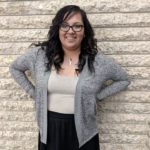 Tiffany Benn, Dakota Sioux from Birdtail Sioux Reserve, and mother of 4 awesome kids is a 3rd-year student in the U of Regina Social Work Program at our Saskatoon Campus, and alumni of the University of Saskatchewan Bachelor of Sociology Program (BA 2019). Tiffany first joined the Indigenous Student Achievement Pathways (ISAP) community as a student in the Star Blanket first-year Learning Community and has stayed connected working as an ISAP peer mentor since 2017. Tiffany is looking forward to another year mentoring with the program in 2020-21.
Tiffany Benn, Dakota Sioux from Birdtail Sioux Reserve, and mother of 4 awesome kids is a 3rd-year student in the U of Regina Social Work Program at our Saskatoon Campus, and alumni of the University of Saskatchewan Bachelor of Sociology Program (BA 2019). Tiffany first joined the Indigenous Student Achievement Pathways (ISAP) community as a student in the Star Blanket first-year Learning Community and has stayed connected working as an ISAP peer mentor since 2017. Tiffany is looking forward to another year mentoring with the program in 2020-21.
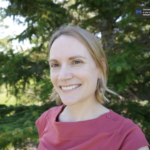 Sandy Bonny, a non-Indigenous member of Saskatoon’s Treaty 6 community, and mother of one awesome kid has an interdisciplinary background in the Earth sciences (PhD. 2007) and literary arts. Sandy has worked with the USASK College of Arts & Science ISAP program since 2012 in various roles as an instructor, curriculum and program developer, and currently as ISAP team lead.
Sandy Bonny, a non-Indigenous member of Saskatoon’s Treaty 6 community, and mother of one awesome kid has an interdisciplinary background in the Earth sciences (PhD. 2007) and literary arts. Sandy has worked with the USASK College of Arts & Science ISAP program since 2012 in various roles as an instructor, curriculum and program developer, and currently as ISAP team lead.
See Tiffany and Sandy’s poster here.
See Victoria’s presentation, Friday, August 14; 8:30 am PDT/ 12:30 pm ADT.
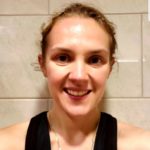 Jocelyn Paul
Jocelyn Paul
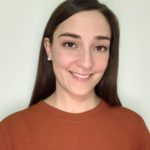 Kelsey Shea was born and raised in Halifax, Nova Scotia. She completed a BSc and MSc in Kinesiology at Dalhousie University before moving to Ottawa to study Medicine at the University of Ottawa. Her current medical interests include Indigenous health and woman’s health.
Kelsey Shea was born and raised in Halifax, Nova Scotia. She completed a BSc and MSc in Kinesiology at Dalhousie University before moving to Ottawa to study Medicine at the University of Ottawa. Her current medical interests include Indigenous health and woman’s health.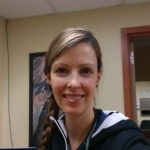
 Tiffany Benn, Dakota Sioux from Birdtail Sioux Reserve, and mother of 4 awesome kids is a 3rd-year student in the U of Regina Social Work Program at our Saskatoon Campus, and alumni of the University of Saskatchewan Bachelor of Sociology Program (BA 2019). Tiffany first joined the Indigenous Student Achievement Pathways (ISAP) community as a student in the Star Blanket first-year Learning Community and has stayed connected working as an ISAP peer mentor since 2017. Tiffany is looking forward to another year mentoring with the program in 2020-21.
Tiffany Benn, Dakota Sioux from Birdtail Sioux Reserve, and mother of 4 awesome kids is a 3rd-year student in the U of Regina Social Work Program at our Saskatoon Campus, and alumni of the University of Saskatchewan Bachelor of Sociology Program (BA 2019). Tiffany first joined the Indigenous Student Achievement Pathways (ISAP) community as a student in the Star Blanket first-year Learning Community and has stayed connected working as an ISAP peer mentor since 2017. Tiffany is looking forward to another year mentoring with the program in 2020-21. Sandy Bonny, a non-Indigenous member of Saskatoon’s Treaty 6 community, and mother of one awesome kid has an interdisciplinary background in the Earth sciences (PhD. 2007) and literary arts. Sandy has worked with the USASK College of Arts & Science ISAP program since 2012 in various roles as an instructor, curriculum and program developer, and currently as ISAP team lead.
Sandy Bonny, a non-Indigenous member of Saskatoon’s Treaty 6 community, and mother of one awesome kid has an interdisciplinary background in the Earth sciences (PhD. 2007) and literary arts. Sandy has worked with the USASK College of Arts & Science ISAP program since 2012 in various roles as an instructor, curriculum and program developer, and currently as ISAP team lead.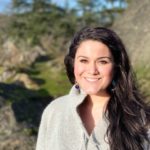 Stephanie Day
Stephanie Day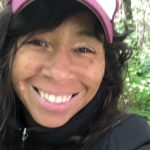 Victoria Bomberry
Victoria Bomberry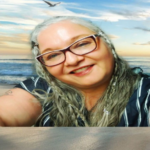 Christine Smillie-Adjarkwa (Naawe Giizhigoo Kwe)
Christine Smillie-Adjarkwa (Naawe Giizhigoo Kwe)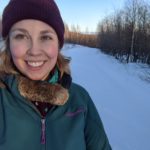 Emily Beacock
Emily Beacock
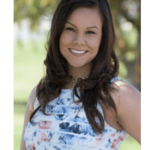 Sharlene Webkamigad, RN, is an Anishinabe-Kwe from the Wiikwemkoong Unceded Territory on Manitoulin Island, Ontario, Canada. She combines her life and career experiences as she proceeds with her educational journey in the Interdisciplinary Ph. D. in Northern and Rural Health program at Laurentian University. Sharlene was a lead author to three publications emphasizing blended approaches to Indigenous and Western Knowledge in research methodology. The first, “Exploring the appropriateness of culturally safe dementia information with Indigenous People in an Urban Northern Ontario Community” was published in the Canadian Journal on Aging. The second, “An approach to improve dementia health literacy in Indigenous communities” was published in the Journal of Cross-Cultural Gerontology. Her latest paper, “Identifying and understanding the health and social care needs of Indigenous older adults with multiple chronic conditions and their caregivers: a scoping review” has been published in BMC Geriatrics. Currently, Sharlene is co-developing a community-driven participatory project that places a priority on Anishinabek world views to develop an age-and-dementia friendly community model. Her roots are embedded in the community with a stronghold on determinants of health at northern, rural and local landscapes. You can find Sharlene, along with her husband and two children, on Manitoulin enjoying the outdoors.
Sharlene Webkamigad, RN, is an Anishinabe-Kwe from the Wiikwemkoong Unceded Territory on Manitoulin Island, Ontario, Canada. She combines her life and career experiences as she proceeds with her educational journey in the Interdisciplinary Ph. D. in Northern and Rural Health program at Laurentian University. Sharlene was a lead author to three publications emphasizing blended approaches to Indigenous and Western Knowledge in research methodology. The first, “Exploring the appropriateness of culturally safe dementia information with Indigenous People in an Urban Northern Ontario Community” was published in the Canadian Journal on Aging. The second, “An approach to improve dementia health literacy in Indigenous communities” was published in the Journal of Cross-Cultural Gerontology. Her latest paper, “Identifying and understanding the health and social care needs of Indigenous older adults with multiple chronic conditions and their caregivers: a scoping review” has been published in BMC Geriatrics. Currently, Sharlene is co-developing a community-driven participatory project that places a priority on Anishinabek world views to develop an age-and-dementia friendly community model. Her roots are embedded in the community with a stronghold on determinants of health at northern, rural and local landscapes. You can find Sharlene, along with her husband and two children, on Manitoulin enjoying the outdoors.